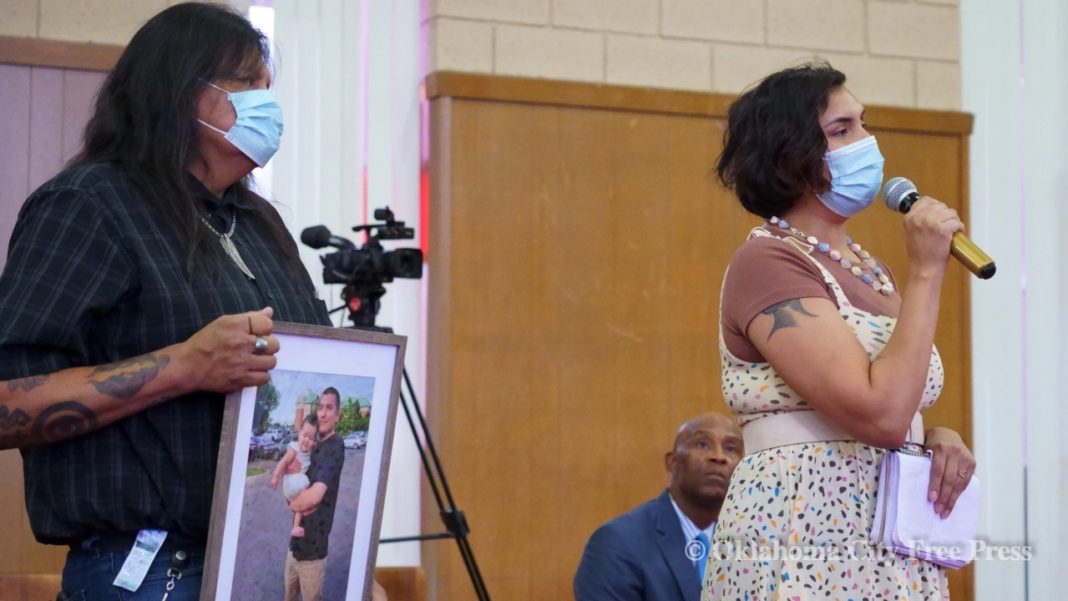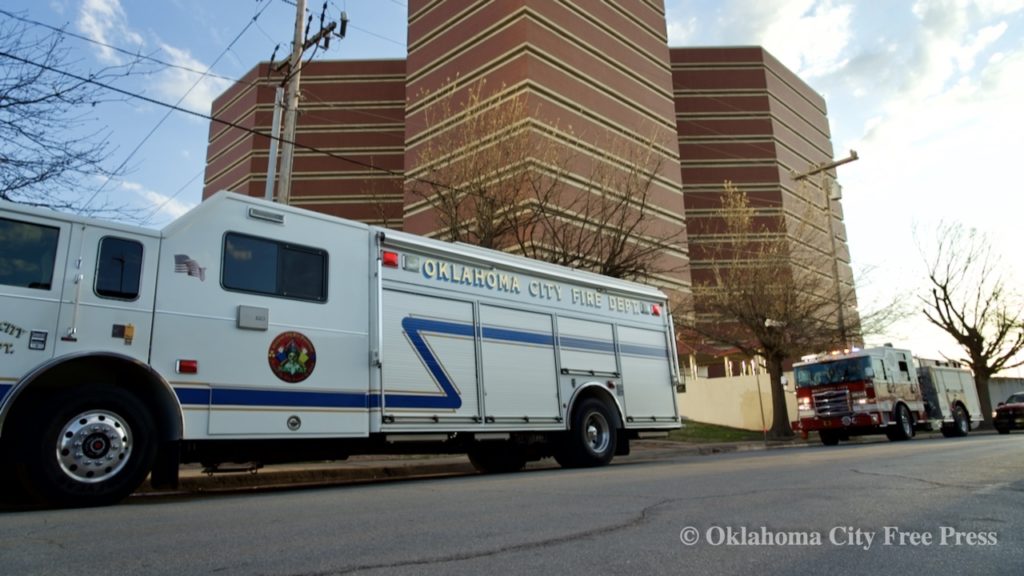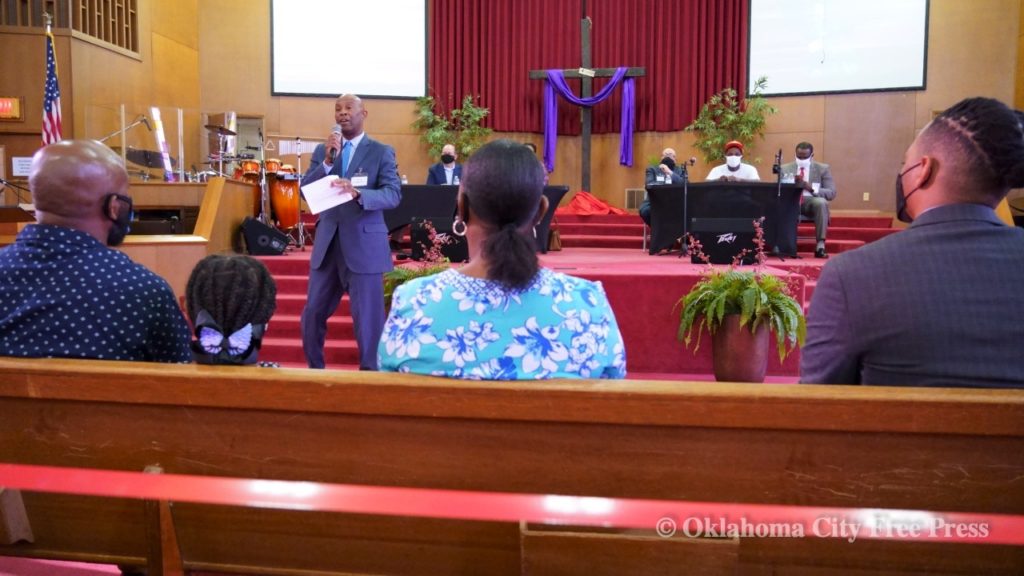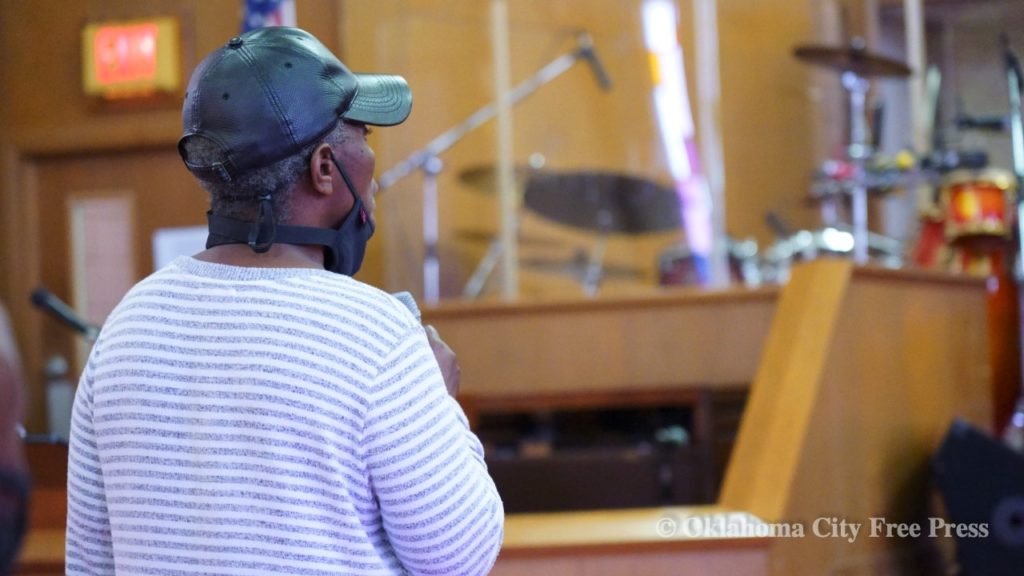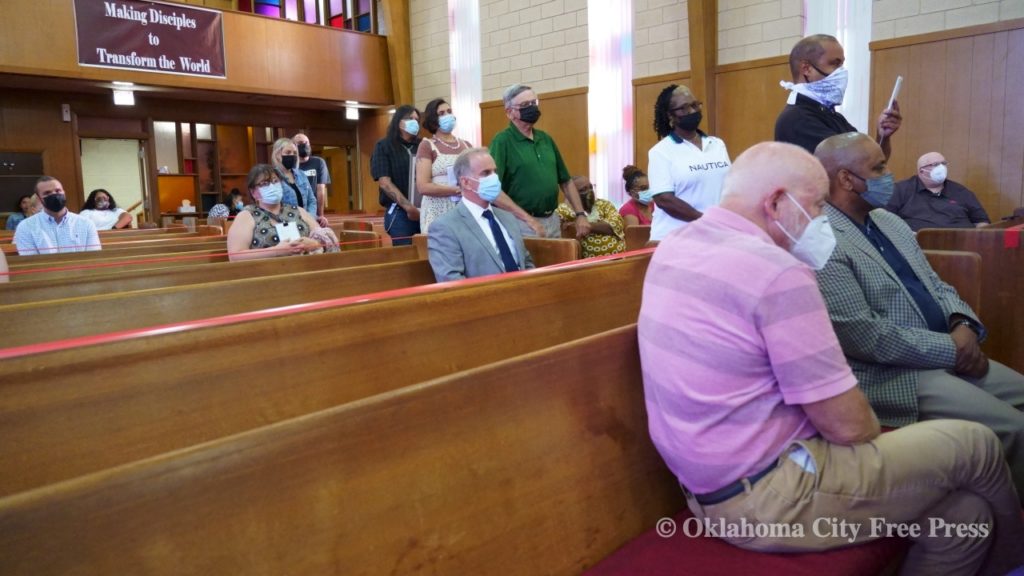Last Updated on August 13, 2021, 9:57 AM | Published: August 13, 2021
OKLAHOMA CITY (Free Press) — A listening session Thursday evening was intended to be an earnest effort to hear from the public about the physical facility of the Oklahoma County Jail.
What they got was over two hours of comments about the suffering that the Jail has caused in this community.
Adding to the pain of the evening, participants heard news reports about yet another death in the Oklahoma County Jail earlier in the day.
It was the ninth death of someone in Oklahoma County’s custody, the eighth occurring only Tuesday.
The news was a jolting reminder that something needs to be done with the current jail situation.
Some who came to comment had loved ones who are on the list of those who have died in the Jail.
Rachel Kimbrough spoke as her father held a photo of her brother who died in the Jail in June. “They are not animals!” she said crying. “A dog is really better treated than my brother was treated for 15 hours.”
Management
The announced question of the evening for public comment was: What does our community want the Oklahoma County Detention Center to be in 10 years?
But, that wasn’t what Thursday evening ended up being about. Most comments from the public were first-hand accounts about severe issues with the management of the jail.
Most were from recent times.
But, some stories originated all the way back to Sheriff John Whetsell who ran the Jail for 20 years retiring in 2017 in the middle of a state investigation of financial mismanagement.
No public comment made a case that if the building was fixed or replaced everything would be better. Instead, the comments were about conditions caused by those who managed it which is ultimately the responsibility of the Oklahoma County Commissioners.
District 1 Commissioner Carrie Blumert was the only county official who attended.
The panel
Even though the event was meant to focus on the facility, FSB Architectural and Engineering firm in Oklahoma City did include people who know the community and understand the struggles of people and families who have encountered the jail environment in the past.
The panel included only one architect and one jail design specialist working for FSB.
John Semtner, principal of the firm, seemed to understand that there were issues that needed to be acknowledged before any decisions about the current building or a new one could be made.
After giving the audience a rundown of what their firm does and what their consultants were ready to do to develop solutions about a facility, Semtner pointed out the basic purpose of the evening.
“Tonight, we don’t want to do a lot of the topics. Tonight we’re starting a conversation. And so we want to listen,” he said.
The panel also included Tim Tardibono who works for the Greater Oklahoma City Chamber of Commerce and has been dedicated to addressing Jail issues as the executive director of the Criminal Justice Advisory Council (CJAC).
The rest were leaders who are very connected with the community and knew well the issues of the jail and the Jail Trust, especially about the impact of the jail on people’s lives.
Consultants & Roles:
- Wayne Snow, moderator, Snow Business Solutions, LLC;
- John Semtner, Team Lead, Principal, FSB;
- Jeff Bradley, National Justice Director, HOK;
- Tim Tardibono, Executive Director, Criminal Justice Advisory Council.
HOK is the largest designer and builder of jails in the U.S., as well as national experts in jail mental and behavioral health and funding.
Community Leaders:
- Rep. Jason Lowe; State Representative, District 97;
- Tamya Cox-Toure’, Executive Director, ACLU Oklahoma;
- Jabee, Hip-Hop artist, actor, and activist.
Lowe, a criminal defense attorney, said that he has to come to the jail almost daily to talk with his clients and knows that environment well. He was strongly in favor of building a new jail.
Jabee, whose rap performances normally have an impressive flow, seemed to have a difficult time even speaking about the jail, a source of pain especially on the heavily-policed east side and in his own life when he was in the jail at 30 years old.
He criticized county officials and the Jail Trust members for not listening to those who are closest to the issues of the Jail.
Cox-Toure’ with the ACLU was focused on the larger issues of the criminal justice system in Oklahoma including Oklahoma County.
“We’ve invested – they’ve invested – in campaigns, like the war on drugs, aggressive prosecutions, and institutional racism and a failure to prioritize community through addiction services, and mental health,” said Cox.
After citing issues with the system itself that tends to fill up every facility no matter what the size, she argued, “drastic reform has to happen.”
Comments
When the public was allowed to speak, the pain rolled out.
For over two hours, the panel heard from about 25 to 30 people out of a crowd of around 100.
Some were asked by organizers to lead off with their stories.
Elizabeth Mayho, who is in The Education and Employment Ministry program in OKC, said that her mental health issues were made worse by conditions in the jail while she was there.
“I slept on the floor. I lost my job because they would not give me access to the telephone,” said Mayho.
She wasn’t hopeful about the future of the jail. “It’s not going to change,” she said.
Most of the nearly 30 comments over two hours revolved around the management of the jail.
- Bed bugs are out of control in the jail and contribute to misery of detainees.
- Overcrowding caused even those who enter jail pregnant to have to sleep/sit on the floor.
- The Jail Trust itself is the problem.
- Drug abuse is rampant among detainees who can still acquire drugs even while locked up.
- Abusive treatment of detainees is inhumane.
Yet, there were some comments that did lend credibility to the concept that the Jail must be replaced because the original design flaws are so massive.
- Plumbing is so bad some detainees resort to using garbage bags instead of the toilet.
- Drugs and other contraband are fished through the plumbing system that was not designed for a jail.
- Detainees can talk to each other between cells and even between floors through the drain pipes.
- Heating and air conditioning only work some of the time.
Community conversation
After about an hour and a half, Cox-Toure’ observed that the panel had been organized to hear ideas about the facility but what they were hearing was that the conversation in the community is dealing with the harm from the jail, especially with the way it has been run for many years and how it is run now.
Other members of the panel agreed that perhaps the Jail Trust and the Jail administration should have been there to hear the comments.
But, Free Press has covered extensively how much the Jail Trust has actually heard from constituents since they have been meeting.
A second listening session is planned but the date has not been announced.
Founder, publisher, and editor of Oklahoma City Free Press. Brett continues to contribute reports and photography to this site as he runs the business.
